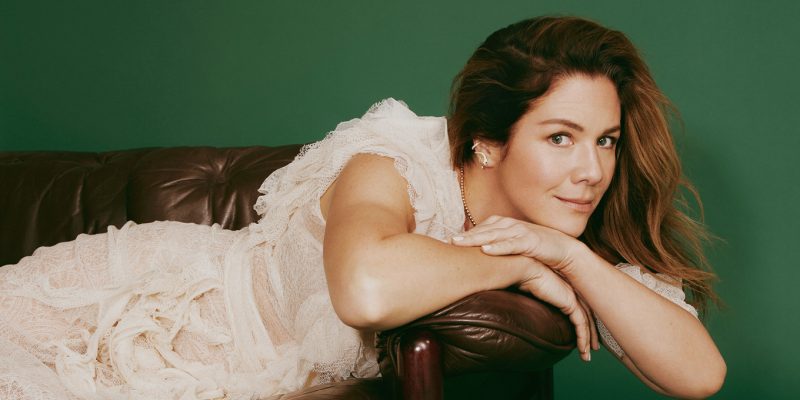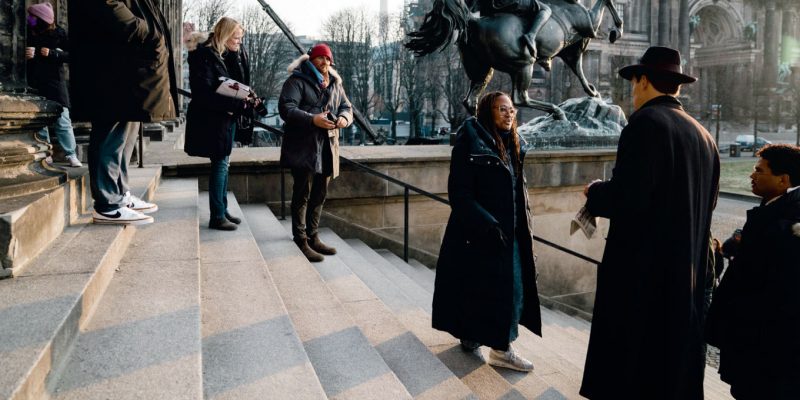Movies & TV
Bottoms Up With Emma Seligman
The Toronto-born director steps into the world of camp, adolescence and queerness with her sophomore film, Bottoms.
by : Heather Taylor-Singh- Aug 25th, 2023

PHOTOGRAPHY, HUNTER ABRAMS; STYLIST, BRIAN MELLER; HAIRSTYLIST, CLARA LEONARD; MAKEUP ARTIST, SAMANTHA LAU. JACKET, SWEATER AND T-SHIRT (MIU MIU)
Emma Seligman was set on making a horny teen comedy. Teetering on the cusp between millennial and Gen-Z, the 28-year-old Toronto-born filmmaker and screenwriter, who uses she/they pronouns, wanted to make a movie that embraces the chaos of being a teenager who only thinks about sex—and the lengths they’ll go to to get it. “I really love the teen movies that I grew up with, particularly raunchy teen-sex comedies,” she says, citing queer films like But I’m a Cheerleader and D.E.B.S. as well as more traditional versions like Superbad and Wet Hot American Summer.
Enter Bottoms, a film centred on best friends PJ and Josie (played by rising stars Rachel Sennott and Ayo Edebiri), who start a high school fight club to meet girls. They lead an ensemble cast that includes Kaia Gerber, Marshawn Lynch and newcomers Havana Rose Liu and Ruby Cruz. Written by Seligman and Sennott, Bottoms is a provocative yet joyful film that’s rooted in female sexuality and defies stereotypes. “We both felt that young women and young queer people hadn’t had a chance to be onscreen in a way that’s normal and hormonal,” says Seligman. “For our generation, porn, sexuality and sexual images on the internet have been in our lives since we were children.” Although Bottoms opens in Canadian theatres on September 1, since it hit the festival circuit earlier this year, it has received rave reviews for being exceptionally different and refreshing.
But Seligman is no stranger to creating buzz. In 2020, she received immense praise for her debut film, Shiva Baby, which was based on a short-film thesis project she did as a student at New York University, when it premiered at the South by Southwest (SXSW) film festival. The full-length feature had its first in-person screening (due to the pandemic) at the Toronto International Film Festival (TIFF) in 2020, which was a special moment for Seligman as it was a chance to showcase her work on her home turf.
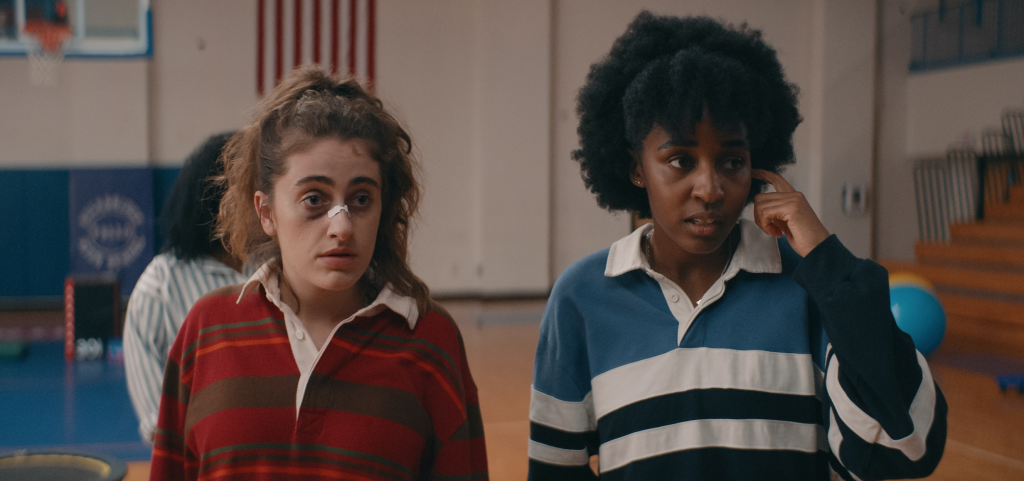 PHOTOGRAPHY, COURTESY OF Orion Pictures
PHOTOGRAPHY, COURTESY OF Orion Pictures Shiva Baby, which takes place in the span of a couple of hours and captures the anxiety of being in a closed space, follows Danielle (Sennott), a college student who is attending an awkward Jewish funeral service and has to face her parents, her sugar daddy and her ex-girlfriend all at once. Seligman drew inspiration from her own life growing up in Toronto in Yonge and Eglinton’s Reform Judaism Ashkenazi community. She says the city and its appreciation of film helped shape her love of the arts. As a teen, she wrote film reviews for The Huffington Post and was a part of TIFF’s Sprockets and Next Wave initiatives, designed for budding young filmmakers. “A city that loves film so much and where everyone is always talking about what they’re watching—I think that’s rare,” she says.
Once she graduated high school, Seligman headed off to study film at New York University’s Tisch School of Arts, where she befriended both Sennott and Edebiri, students who were working their way up in the comedy scene. Now, both of these actors are established in their own right: Edebiri is known for her whip-smart TV writing (Big Mouth) and much talked about—and Emmy nominated—role in The Bear, while Sennott, who was in last year’s summer hit Bodies Bodies Bodies as well as HBO’s infamous series The Idol as a scene-stealing assistant, is now basking in her own Hollywood spotlight.
While Seligman and Sennott were writing Bottoms together, it quickly became a hilariously refreshing take on girlhood and desire. Seligman calls their dynamic “fun and chaotic,” explaining that she is usually more in her head, while Sennott lays all her creativity on the table. “When you’re writing with someone like Rachel, it’s really easy,” says Seligman. “It’s also very supportive. She’s really good at pep talks and keeping the energy going.”
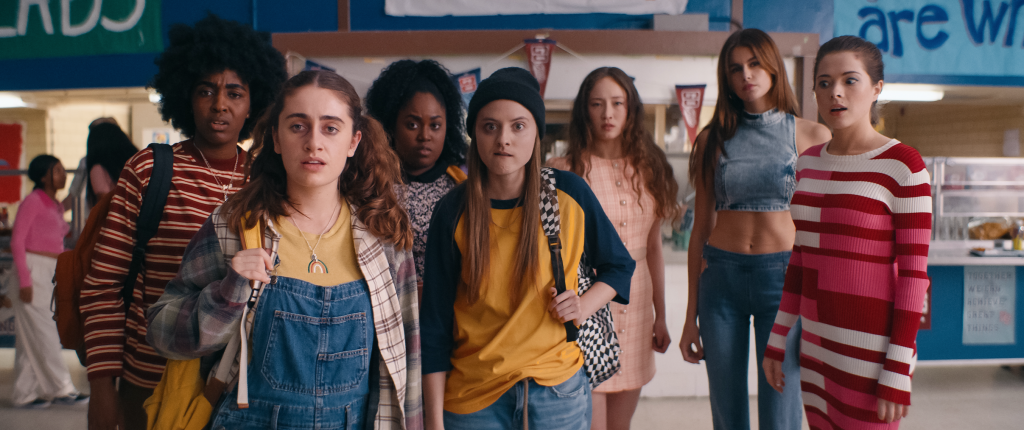 PHOTOGRAPHY, COURTESY OF Orion Pictures
PHOTOGRAPHY, COURTESY OF Orion Pictures “Once [Shiva Baby] found its audience of girls and queer people and Jewish people, I was like, ‘oh, there’s an audience for Bottoms,’ and it made me feel more encouraged.”
A pep self-talk is something Seligman needed when she was gearing up for the release of Shiva Baby, but nerves aren’t something she’s worried about this time around. “I did not expect my first movie to go over this well—especially during the pandemic,” she says. “Once [Shiva Baby] found its audience of girls and queer people and Jewish people, I was like, ‘Oh, there’s an audience for Bottoms,’ and it made me feel more encouraged.”
The strong element of queerness Seligman brings to her work is inspired in part by the movies she loved growing up but also by her own experience of realizing that she was queer in university. (“Looking back, there were signs,” she says with a laugh.) “I want to see more movies where queerness is there but [isn’t the main] plot,” she says. It’s why she made a point of establishing Sennott and Edebiri as queer right from the opening scene. She also admits that the characters in Bottoms all have facets of her personality, whether it’s PJ’s overconfidence or Josie’s awkwardness. “I can’t really write characters that I can’t relate to.”
This year, when Bottoms had its in-person world premiere at SXSW, it was a full-circle moment that went better than Seligman had hoped. Building a community is something she hadn’t realized she could do with her films. Bottoms also premiered at queer festivals, including OutFest in Los Angeles and NewFest. in New York, the latter of which had sold-out shows. “I didn’t know how much I was missing until these [live] screenings,” she says. “Laughing with an audience is crazy. It’s the best medicine, and it really makes you think, ‘Okay, I think this was worth all the hard work.’”
Read more:
Meet the Canadian Women Directors of TIFF 2020
Summer’s Biggest Film and TV Shows That Should Be On Your Radar
Newsletter
Join our mailing list for the latest and biggest in fashion trends, beauty, culture and celebrity.
Read Next

Beauty
The Best Met Gala Beauty Looks Of All Time
From Taylor Swift's 'Bleachella' era to Rihanna's iconic 2011 braids, meet the best beauty moments in Met Gala history.
by : Katie Withington- Apr 26th, 2024
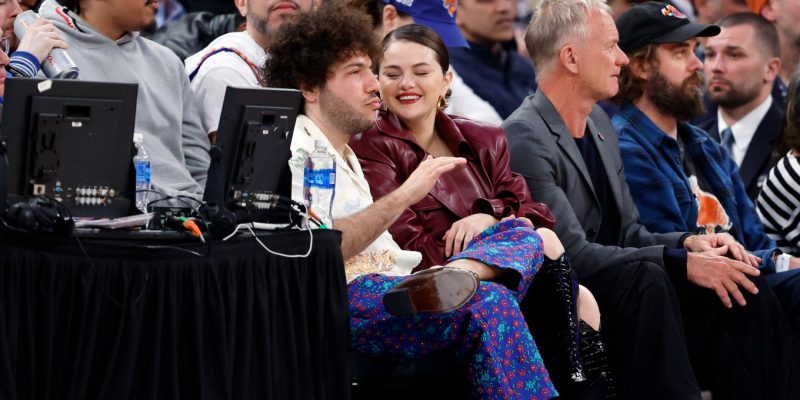
Culture
Benny Blanco Says He Fell in Love With Selena Gomez Without ‘Even Noticing’ It
Allow Benny Blanco to tell the straight-from-a-rom-com story of how he realized his feelings for his girlfriend and longtime friend.
by : Alyssa Bailey- Apr 26th, 2024

Beauty
ELLE Tried It: Five Serums to Up Your Skincare Game
Members of the ELLE team tested Avène Dermatological Laboratories’ five new concentrated serums. Here's what they thought.
by : ELLE Canada- Apr 25th, 2024



